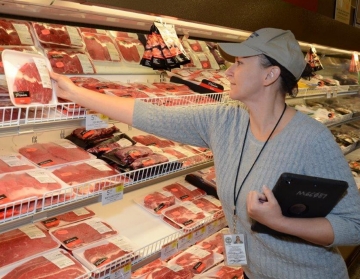Consumer and Industry Services
Notice to Customers
The Tennessee Department of Agriculture is making it easier for customers to interact with the Division of Consumer and Industry Services.
Invoices, licenses, and permits gained a new look in 2023. Streamlining the documents makes them simpler to interpret and understand.
The new, secure online Trace First CoreOne portal eases access to invoice, license, and permit information. Business owners can see the status of a license or registration, when payment is due, and the balance owed. Additionally, payments can be made online with a credit card or eCheck, eliminating the need to send payments through the mail.
As always, we appreciate your partnership in serving the citizens of Tennessee. If you have any questions, please do not hesitate to reach out to the Consumer and Industry Services Division at (615) 837-5150.

The Consumer and Industry Services Division monitors a diverse range of materials, products, and services to ensure quality, consumer protection, public safety, and a fair marketplace.
To support a safe food supply, the Food and Dairy section enforces bottled water regulations and licenses and inspects retail food stores, food processors and manufacturers, food warehouses and distributors, dairy farms and milk transport trucks, and custom slaughterhouses.
The Plant Certification section oversees licensing of plant nurseries, dealers, and greenhouses and guarantees healthy, pest-free plants in interstate and international trade.
The Pesticides section registers pesticides for use in Tennessee, inspects pest control businesses, certifies applicators, and monitors groundwater quality.
The Weights and Measures section works to ensure citizens get what they pay for by testing devices such as fuel pumps, commercial scales, and liquid propane gas meters for accuracy. Truth in labeling is verified for fuel quality standards. Inspections are also made for net quantity on packaged products and for the accuracy of price verification systems.
Furthermore, the Division promotes pollinator health, administers grain indemnity, and enforces laws to prevent youth access to tobacco.